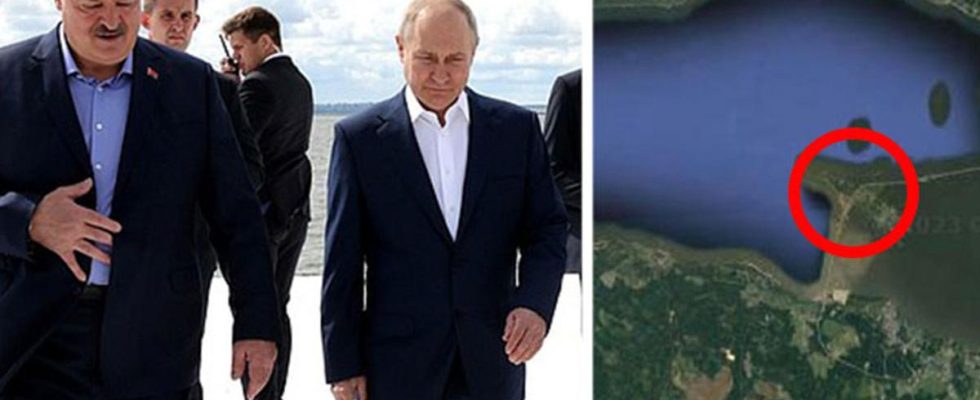Putin took Lukashenko to Kronstadt outside St. Petersburg.
It is not believed to have been a coincidence.
The ISW think tank has listed several hidden signals that are revealed by the images from the visit.
After this summer’s aborted coup attempt, the Russian private army Wagner Group and its leader Yevgeny Prigozhin have been transferred to Belarus.
It was in focus when Belarus President Alexandr Lukashenko was received by Putin in Saint Petersburg on Sunday. Afterwards, the world’s media focused on Lukashenko’s claim that the Wagner soldiers are in a bad mood and want to march on NATO country Poland.
But the American think tank ISW concentrates on something else in its analysis of the visit.
After the talks, Putin took Lukashenko to the militarily important island of Kronstadt outside Saint Petersburg. The images from the trip reveal, according to ISW’s analysis on Monday, several hidden signals from Putin.
check The location
The naval base at Kronstadt, still active today, was the scene of a well-known uprising in 1921. Soldiers and sailors turned on the Bolsheviks but were repulsed. According to ISW, it was no coincidence that Putin took Lukashenko there. He wanted, according to the think tank, to show strength and self-confidence after Prigozhin’s coup attempt.
check The people
Saint Petersburg Governor Alexander Beglov and Ksenia Shoigu, daughter of Defense Minister Sergei Shoigu, accompanied them to Kronstadt and were shown alongside Putin and Lukashenko in the Kremlin’s own photos. Both Beglov and Shoigu are personal enemies of Prigozhin, ISW writes.
check The plating
Putin and Lukashenko visited, among other things, a cathedral on the island. Afterwards, they allowed themselves to be photographed with ordinary Russians, including a wedding couple. In one of the Kremlin’s photos, Putin holds a child in his arms. According to ISW, through this unusual photo opportunity, Putin wanted to send the signal that he is a beloved leader to the Russian public. “These symbolic gestures indicate that Putin is concerned about his perceived popularity, the security of his regime and the factions fighting for power high up in the Russian leadership,” the think tank writes.
